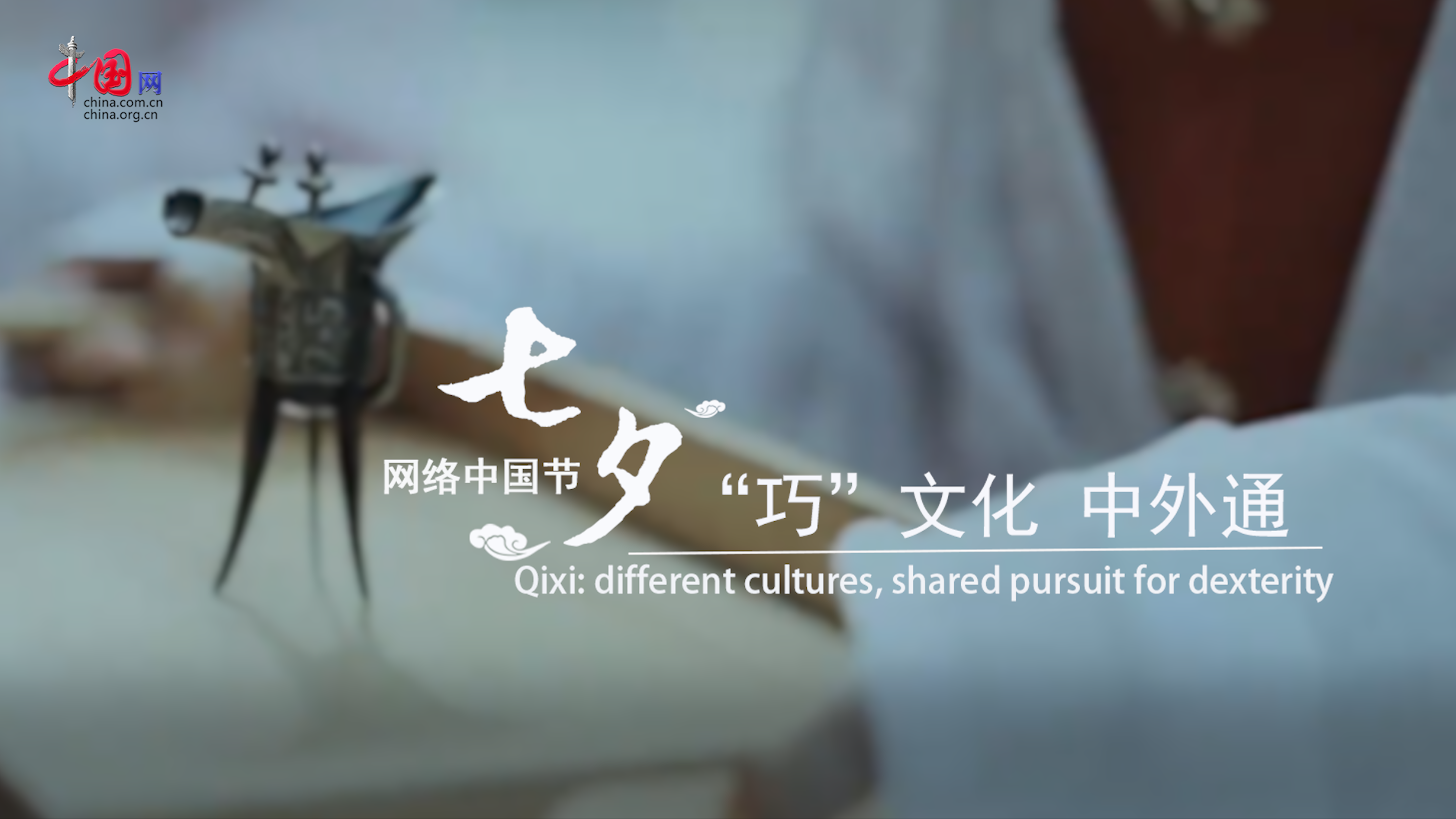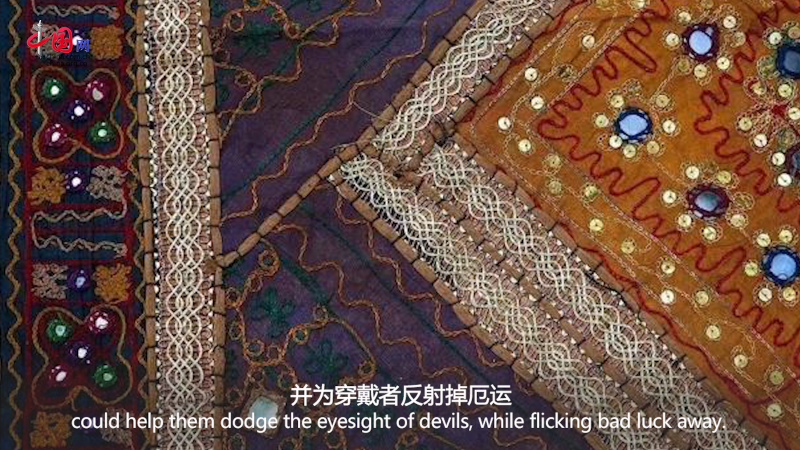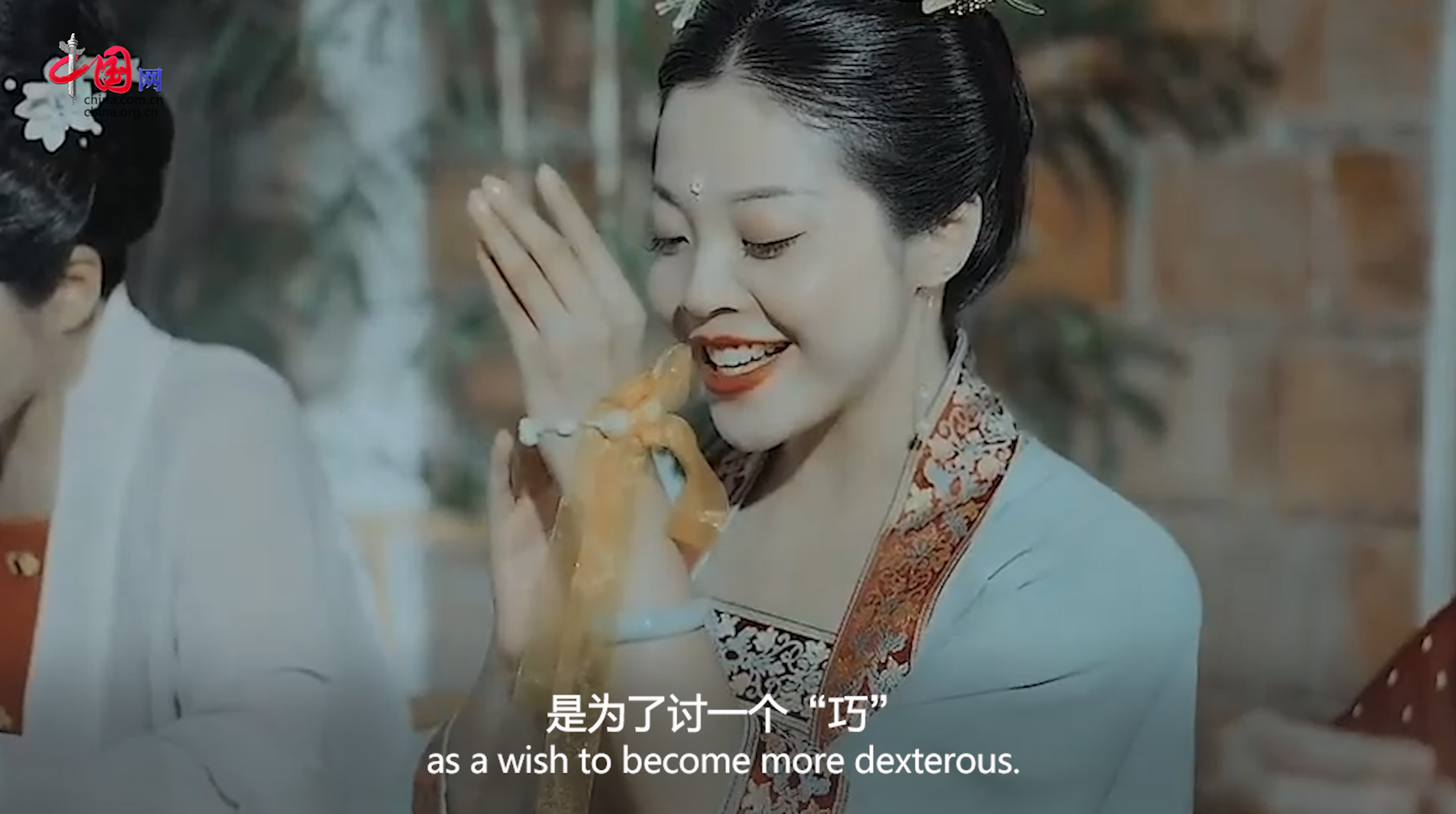【網路中國節·七夕】“巧”文化 中外通
每年農曆七月初七,是中國傳統的七夕節。
Qixi, the Chinese valentine’s day, falls annually on the seventh day of the seventh month in the Chinese lunar calendar.

七夕節又被稱為“乞巧節”,這一天,尤其是在中國古代,女子們向紡織女神“織女”祈求智慧,傳授給自己紡紗、織布、縫衣的手藝,希望自己變得心靈手巧。在我們往期節目中,也有介紹過京繡、苗繡、黎錦等等,這都是體現女子針線活了得的手工藝術。
Qixi is also known as the festival to “pray for dexterity”. On this day, especially in ancient China, females would pray to Zhinu, the goddess of weaving, wishing for wisdom and dexterity in skills like spinning, weaving and sewing. In our previous programs, we introducedJingxiu (Beijing embroidery), Miao embroidery and Li brocade, whose techniques all reflect the dexterity of females.
在世界上很多國家的節慶活動中,特色的刺繡也常常是重要裝飾品和重頭戲。例如印度的九夜節(Navratri),人們相信帶鏡面的刺繡能夠躲避惡魔的眼睛,併為穿戴者反射掉厄運,因此這種鏡面刺繡(shisha)成為節慶的必備品。
In many countries around the world, embroidery with respective features are important festival ornaments, sometimes they even play a significant role in celebration rituals. For example, people in India believe that shisha embroidery, a type of embroidery which attaches small pieces of mirrors, could help them dodge the eyesight of devils, while flicking bad luck away. Therefore, shisha embroidery is indispensable during Navratri in India.

能夠製作花式美食也是“巧手”的重要內容。七夕節就有一樣特色食物——“巧果”,是以油麵糖蜜為材料製作的點心。巧果有多種樣式,往往還用線穿成一串,給孩子們戴上,希望孩子也能變得靈巧。
Capable of making various gourmet food is also included in the definition of “dexterity”. In China, a pastry called Qiao Guo is the traditional food for Qixi. Made from oil, flour, sugar and honey, Qiao Guo come in various shapes. People usually string these pastries together and put them around children’s necks, wishing the kids would grow dexterous too.
世界各國的節慶文化中,也總是少不了一道獨特的甜品,代表著對於幸福、甜蜜、好運的共同追求。
Unique desserts are a crucial part in many countries. Though cultures vary, people share their wish for happiness and good luck via such desserts.
古代乞巧節的活動還有很多,例如喜聞樂見的“喜蛛應巧”——將小蜘蛛捉住,放在小盒子中一整晚,第二天用蛛網的疏密來檢驗“巧多”還是“巧少”。女子們還會做“穿針乞巧”的遊戲,在月光下婦女以五彩絲縷穿七孔針或九尾針,先成者謂之“得巧”。
In ancient times, people had many other activities to celebrate Qixi. For example, girls would catch a little spider, keep it in a box for a night, and see how well it would weave — if a rather dense net was weaved, it means the prayer would be blessed with more dexterity, and vice versa. Girls would also thread needles to pray for dexterity: In the moonlight, whoever first finishes threading a seven-holed or even nine-holed needle will “win dexterity”.

乞巧節,女子圍繞針線的各類活動是為了討一個“巧”。但你知不知道中國還有一個傳統節日與之相反,是絕對不能動針線的呢?以後的節目再告訴你吧!
On Qixi, Chinese females do various activities about needlework as a wish to become more dexterous. But do you know that there is another traditional Chinese festival, during which needlework is forbidden? We’ll talk about it in future programs!
